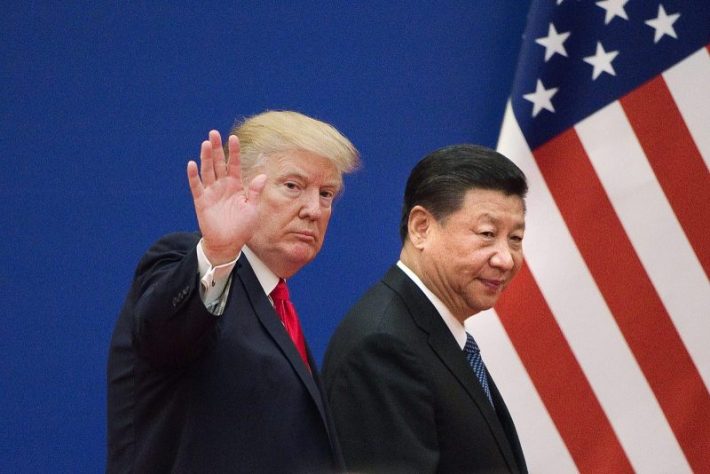
The debate over language, identity and education is not new to India’s political landscape. The latest in this ongoing debate is Union Home Minister Amit Shah’s suggestion to Tamil Nadu Chief Minister M.K. Stalin to introduce medical and engineering courses in Tamil. The proposal comes amid a heated debate over allegations of Hindi imposition through the National Education Policy (NEP) and a fresh wave of political tension between the Bharatiya Janata Party (BJP) and the Dravida Munnetra Kazhagam (DMK).
All the points in this post
The Hindi Imposition Debate
Language has always been a sensitive issue in India, a country with over 22 officially recognised languages and hundreds of dialects. The debate over Hindi as the national language dates back to the pre-independence era, when Hindi and English were designated as the official languages of the Union. However, non-Hindi speaking states, particularly Tamil Nadu, have consistently resisted any attempt to impose Hindi, seeing it as a threat to their linguistic and cultural identity.
Tamil Nadu’s opposition to the imposition of Hindi stems from the Dravidian movement of the 1960s, which advocated for the Tamil language and culture. Historically, the state has rejected the three-language formula with Hindi and instead adopted a dual-language policy of Tamil and English. This resistance has often put Tamil Nadu at odds with the central government, especially when policies are perceived to favor Hindi.
Amit Shah’s Proposal
In a recent speech, Amit Shah suggested that Tamil Nadu should consider introducing medical and engineering courses in Tamil. He argued that this would make education more accessible to students who are more comfortable receiving education in their mother tongue. Shah stressed that the central government is committed to promoting regional languages and that the move would be in line with the larger goal of the NEP.
However, the proposal has faced skepticism from Tamil Nadu’s ruling party, the DMK. Chief Minister M.K. Stalin dismissed the suggestion as “misleading”, alleging that the BJP was trying to divert attention from the real issues surrounding the NEP. Stalin’s ‘LKG’ remark, which referred to the BJP’s understanding of Tamil Nadu’s needs being at the “lower kindergarten” level, further fuelled the political fire.

The ‘LKG’ Remark and BJP’s Response
Stalin’s ‘LKG’ remark was a sharp response to Amit Shah’s proposal, implying that the BJP lacked a nuanced understanding of Tamil Nadu’s educational and cultural landscape. The remark quickly went viral, with social media users and political analysts picking up on the exchange.
The BJP quickly hit back, with party leaders accusing Stalin of rejecting genuine efforts to promote regional languages. They argued that the DMK’s resistance to Hindi was politically motivated and that the party was failing to recognise the benefits of multilingual education. The war of words between the two parties has further intensified the existing tensions, with both sides looking to their downfall.
The National Education Policy (NEP) Controversy
The NEP, introduced in 2020, aims to make India’s education system more inclusive, flexible and in line with global standards. One of its key provisions is the promotion of regional languages in education, with the policy encouraging the use of mother tongue as the medium of instruction at least up to class V.
However, Tamil Nadu has expressed concerns that the NEP could be a covert attempt to impose Hindi. The state has rejected the policy outright, with the DMK-led government arguing that it undermines the autonomy of states in setting educational priorities. The controversy has become a rallying point for political parties in Tamil Nadu, who see it as an attack on the state’s linguistic and cultural identity.
The Feasibility of Teaching Technical Courses in Tamil
Amit Shah’s proposal to teach medical and engineering courses in Tamil has sparked a political debate, but it also raises important questions about the feasibility of such an initiative. One of the biggest challenges is translating technical terminology into Tamil. The medical and engineering fields rely on specialized vocabulary, much of which is derived from Latin, Greek or English. Translating these words into Tamil without losing their clarity and meaning would be a complex task.
However, proponents of the idea argue that teaching in regional languages can make technical education more accessible to students from rural and non-English speaking backgrounds. Countries such as China, Japan and Germany have successfully implemented technical education in their mother tongues, proving that it is possible to achieve high-quality education without relying on English.
Political Implications
The language debate has significant political implications, especially in Tamil Nadu, where language and identity are deeply intertwined. The BJP, which is trying to expand its footprint in South India, faces an uphill battle in Tamil Nadu, where regional parties like the DMK and AIADMK have traditionally dominated. The party’s push for Hindi and NEP has reinforced the perception that it is out of touch with the state’s cultural sensitivities.
On the other hand, the DMK has used the language issue to build support and position itself as a defender of Tamil identity and culture. The party’s strong stance against Hindi imposition has resonated with voters, making it a key plank of its political strategy.
Public Opinion and Social Media Reactions
The debate has sparked lively discussions on social media, with hashtags like #HindiImposition and #TamilPride trending on platforms like Twitter. While some users have welcomed Amit Shah’s proposal as a step towards promoting regional languages, others have criticised it as a political ploy. Prominent figures in academia, politics and civil society have weighed in, reflecting a diversity of views on the issue.
The media and opinion publications have also played a significant role in shaping the narrative, with newspapers also playing a key role in shaping the narrative. The polarised nature of the debate highlights the deep emotions surrounding language and identity in India.
End
The controversy over the imposition of Hindi and Amit Shah’s proposal to teach medical and engineering courses in Tamil highlight the complex interrelationships between language, education and politics in India. While the idea of promoting regional languages in education is laudable, it should be implemented in a way that respects the linguistic and cultural diversity of the country.
As India moves forward, it is essential to strike a balance between national cohesion and regional identity. The language debate is unlikely to be resolved anytime soon, but it serves as a reminder of the importance of dialogue and mutual respect in a diverse and pluralistic society. The future of language politics in India will depend on how well the country addresses these challenges, ensuring that no language or culture is left behind.






